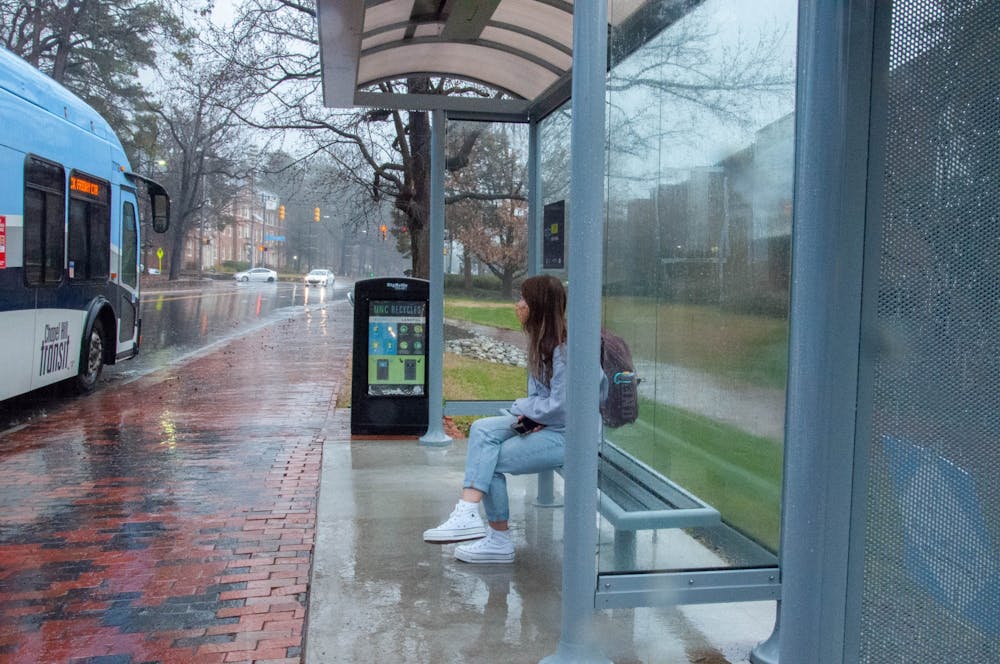Chapel Hill Transit has been awarded a $2.16 million grant by the Federal Transit Administration to improve bus stops and advance its Bus Stop Improvement Plan. Chapel Hill was one of 130 municipalities across the country to receive one of these grants.
Chapel Hill Transit operates over 30 bus routes and maintains over 500 bus stops in Chapel Hill and Carrboro, many of which were put in place before 1990. Each bus stop costs between $15,000 and $30,000 to build.
The Bus Stop Improvement Plan is funded primarily by the Orange County Transit Plan, along with the Chapel Hill Transit budget and the new FTA grant funding.
“We have a list of all the bus stops in the system, and we've prioritized them based on how much they need to be upgraded, which ones need to be more ADA accessible and that kind of thing,” Carrboro Mayor Damon Seils said. “This really large grant has kind of helped us put a big hole in that effort and get us much farther along than we would have been otherwise.”
The Bus Stop Improvement Plan aims to address safety concerns and update locations with shelters to comply with ADA standards, among other goals.
“Not only are they the place where customers go to and from buses — it's also the first impression that many residents, visitors and others have of Chapel Hill Transit,” Brian Litchfield, the director of Chapel Hill Transit, said. “Our interest is to make sure that our bus stops are easily identifiable, safe and accessible and generally comfortable places for customers to wait to use the bus.”
The grant was awarded as part of President Joe Biden’s Bipartisan Infrastructure Law for transit projects. Seven other transit systems in North Carolina received grants as well, including the Charlotte Area Transit System and Cape Fear Public Transportation Authority.
Right now, fewer than half of the 500 Chapel Hill Transit bus stops have shelters, and many stops do not have NextBus signs, which give real-time updates.
“I think a major part of why Chapel Hill Transit is such a turn-off for a lot of students is that the bus stops are incredibly different looking,” Madyson Long, a UNC student, said. “Some of them are literally just a sign and then some of them are, like, the typical stand that has a prompt or with different bus times on it.”



